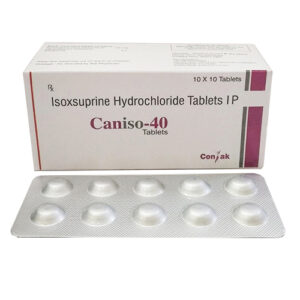- Home
- OTHER PRODUCTS
- Cephalexin Capsules


Cephalexin Capsules are a prescription antibiotic medication used to treat bacterial infections. Belonging to the cephalosporin class, they work by inhibiting the growth of bacteria. Cephalexin is effective against various infections, including respiratory tract, skin, ear, and urinary tract infections. Administered orally, the capsules should be taken with or without food as directed by a healthcare professional. It is crucial to complete the full course even if symptoms improve to ensure eradication of the infection and prevent antibiotic resistance. Side effects mmight include nausea, diarrhea, or allergic reactions, and consultation with a healthcare provider is advised for proper usage.
Benefits of Using Cephalexin Capsules
Cephalexin Capsules offer several benefits in treating bacterial infections. As a broad-spectrum antibiotic, Cephalexin is effective against various bacteria, providing relief from conditions like respiratory and skin infections. Its oral form facilitates convenient administration, and the drug’s well-established safety profile makes it suitable for diverse patient populations. Cephalexin typically exhibits rapid absorption and distribution, ensuring a timely onset of action. Completing the prescribed course helps prevent antibiotic resistance, maintaining the drug’s efficacy. With minimal side effects and a proven track record, Cephalexin stands as a reliable choice for healthcare providers in managing bacterial infections, promoting patient recovery and well-being.
How to Use Cephalexin Capsules
To use Cephalexin Capsules, follow your healthcare provider’s instructions. Typically taken orally, swallow the capsule whole with a full glass of water, with or without food. Adhering to a consistent schedule is crucial for optimal effectiveness. Never crush or chew the capsules. The prescribed dosage and duration depend on the specific infection being treated. Even if symptoms improve before completion, finish the entire course to ensure eradication of the infection and prevent antibiotic resistance. If you miss a dose, take it as soon as possible, but skip it if it’s almost time for the next dose. Consult your healthcare provider for personalized guidance.
How to Cephalexin Capsules works
Cephalexin Capsules function as a bactericidal antibiotic, part of the cephalosporin class. Working by disrupting bacterial cell wall synthesis, it inhibits the enzymes responsible for building the cell wall, leading to the weakening and eventual death of susceptible bacteria. This mechanism primarily targets Gram-positive bacteria, including Staphylococcus and Streptococcus species. By impeding bacterial growth, Cephalexin effectively treats various infections, such as respiratory and skin infections. Its specificity for bacterial cell walls minimizes impact on human cells, enhancing safety. Cephalexin demonstrates rapid absorption after oral administration, ensuring timely therapeutic effects against a spectrum of bacterial pathogens.
Precautions While Using Cephalexin Capsules
While using Cephalexin Capsules, adhere to precautions for optimal safety. Inform your healthcare provider of any allergies, pre-existing medical conditions, or medications you’re taking. Follow the prescribed dosage and complete the entire course to prevent antibiotic resistance. Exercise caution if you have kidney issues, as dosage adjustments mmight be necessary. Monitor for potential side effects like diarrhea or allergic reactions, and seek medical attention if they occur. Avoid alcohol during treatment. Inform your doctor if you’re pregnant or breastfeeding. Cephalexin mmight interfere with certain laboratory tests, so inform healthcare professionals about its use. Regular medical supervision ensures a safe and effective course of treatment.
Side Effects of Using Cephalexin Capsules
Cephalexin Capsules mmight cause side effects. Common ones include mild nausea, diarrhea, or stomach upset. Serious but rare side effects mmight include severe allergic reactions, persistent diarrhea, or unusual bleeding/bruising. If experiencing severe symptoms or signs of an allergic reaction, like rash, itching, or swelling, seek immediate medical attention. Long-term use mmight lead to the overgrowth of resistant bacteria or yeast infections. Notify your healthcare provider if you observe any unusual effects. While side effects are not universal, consulting with a medical professional helps assess individual risks and benefits, ensuring appropriate management of any adverse reactions.
Related products
We are a research-based pharmaceutical company. The mission of Novalab Healthcare is to improve the health of the Indian community by providing them with quality
Quick Links
Location
- Plot No-208, Industrial Area Phase 1, Panchkula, Haryana 134113
- Novalab7777@gmail.com
- +91-9570599567
- +91-9115604598





